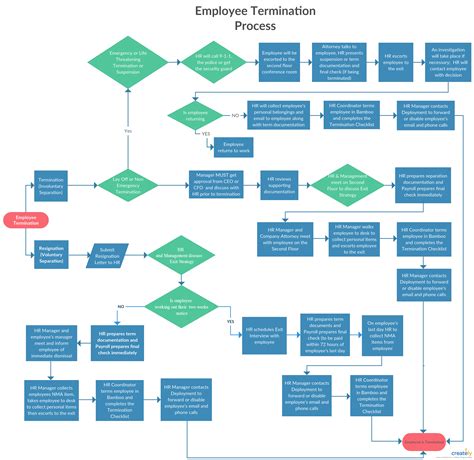Involuntary Termination Of Employment: Explained In English

Have you ever wondered what happens when an employee is involuntarily terminated from their job? In this article, we will explore the concept of involuntary termination of employment and discuss its implications for both employers and employees. We will delve into the reasons why an employee may be terminated involuntarily, the legalities surrounding the process, and the impact it can have on individuals and organizations. So, let’s dive in and explore this important topic.
1. What is Involuntary Termination of Employment?
Involuntary termination of employment, also known as being fired or dismissed, refers to the act of an employer ending an employee’s job against their will. Unlike voluntary resignations, where employees choose to leave their positions, involuntary terminations are initiated by the employer for various reasons.
2. Reasons for Involuntary Termination
There are several reasons why an employer may choose to involuntarily terminate an employee. Some common reasons include:
- Poor job performance: When an employee consistently fails to meet job expectations or perform their duties adequately, the employer may decide to terminate their employment.
- Misconduct: If an employee engages in inappropriate behavior, such as theft, harassment, or violation of company policies, they may be subject to termination.
- Violation of terms: If an employee breaches the terms of their employment contract or engages in activities that are detrimental to the organization, termination may be pursued.
- Restructuring or downsizing: In situations where the organization needs to reduce its workforce or restructure its operations, involuntary terminations may occur.
3. Legal Considerations
Involuntary terminations must be handled in accordance with applicable labor laws and regulations. Employers must ensure that they follow the correct procedures and provide valid justifications for terminating an employee’s employment. Failure to do so can result in legal consequences, such as wrongful termination lawsuits and financial penalties.
3.1 Employment Contracts and At-Will Employment
The terms of employment contracts play a crucial role in determining the legality of involuntary terminations. In some cases, employees may have contracts that outline specific conditions for termination, such as a notice period or grounds for dismissal. However, in many jurisdictions, employment is considered “at-will,” meaning that either the employer or the employee can terminate the employment relationship at any time, for any reason, as long as it is not discriminatory or in violation of labor laws.
3.2 Discrimination and Retaliation
Employers must be careful to avoid terminating employees based on discriminatory factors such as race, gender, age, disability, or religion. Termination decisions should be based on legitimate business reasons and performance-related factors. Additionally, retaliation against employees for exercising their legal rights, such as reporting workplace violations, is prohibited by law.
4. Impact on Individuals and Organizations
Involuntary termination of employment can have significant consequences for both individuals and organizations.
4.1 Emotional and Financial Impact on Employees
Being involuntarily terminated from a job can have a profound emotional impact on individuals. It can lead to feelings of shock, anger, sadness, and a loss of self-esteem. Additionally, employees may face financial challenges, especially if they were not prepared for the sudden loss of income.
4.2 Reputational and Financial Impact on Organizations
Organizations that engage in frequent or poorly executed involuntary terminations may face reputational damage. Such actions can create a negative perception among current and potential employees, customers, and other stakeholders. Additionally, the costs associated with recruiting, hiring, and training new employees can be substantial.
5. Conclusion
Involuntary termination of employment is a significant event that can have far-reaching consequences for both employees and organizations. It is essential for employers to handle such situations with care, ensuring compliance with applicable laws and regulations. Likewise, employees should be aware of their rights and seek legal advice if they believe they have been wrongfully terminated.
FAQs
-
Can an employee be terminated without notice?
In many jurisdictions with at-will employment, employers have the right to terminate employees without notice. However, employment contracts and local labor laws may require a notice period or severance pay.
-
Can an employee be terminated for no reason?
In jurisdictions with at-will employment, employers generally have the right to terminate employees without providing a specific reason. However, terminating someone for discriminatory or retaliatory reasons is illegal.
-
What should an employee do if they believe they have been wrongfully terminated?
If an employee believes they have been wrongfully terminated, they should consult with an employment lawyer to assess their legal options. They may be able to file a wrongful termination lawsuit or seek other remedies.
